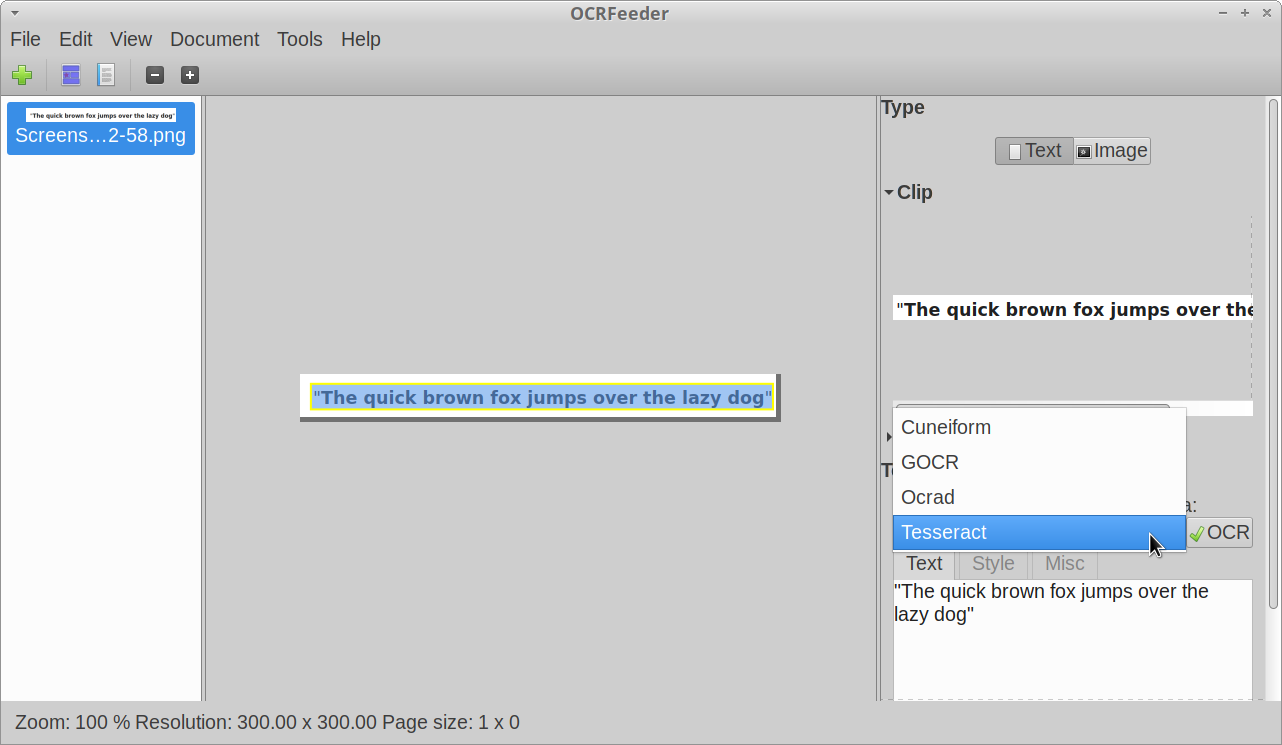

- Linux text recognition software full#
- Linux text recognition software software#
- Linux text recognition software series#
- Linux text recognition software free#
Linux text recognition software software#
Linux text recognition software free#
There are also fun things to try, hardware, free programming books and tutorials, and much more. There's tons of in-depth reviews, open source alternatives to proprietary software from large corporations like Google, Microsoft, Apple, Adobe, Corel, and Autodesk.
Linux text recognition software series#
The software collection forms part of our series of informative articles for Linux enthusiasts. The collection covers all categories of software. Read our complete collection of recommended free and open source software. Speech recognition system for mobile and server applications TensorFlow-based toolkit for sequence-to-sequence models Two-pass large vocabulary continuous speech recognition engine Implementation of DeepSpeech2 using Baidu Warp-CTC.Ĭ++ toolkit designed for speech recognition researchers. TensorFlow implementation of Baidu's DeepSpeech architecture.
Linux text recognition software full#
For each title we have compiled its own portal page with a full description and an in-depth analysis of its features. Let’s explore the 10 free speech recognition tools at hand. Not because it’s copyright is owned by Microsoft, but simply because it’s proprietary software. But HTK is not eligible to feature in the recommended solutions. For sure, HTK is a popular speech recognition toolkit. You may be wondering why HTK doesn’t appear below. It’s an excellent open source platform for developing always-on, voice-controlled applications. This article highlights the best open source speech recognition software for Linux.īefore examining our recommendations, Jasper is worthy of a special mention. These toolkits are meant to be the foundation to build a speech recognition engine.

Fortunately, there are some very exciting open source speech recognition toolkits available. There aren’t that many speech recognition toolkits available, and some of them are proprietary software. Instead, speech engines can employ deep learning techniques to cope with the complexities of human speech.

Powerful tools like machine learning and artificial intelligence, coupled with improved speech algorithms, have altered the way these tools are developed. Fortunately, technical advancements have meant it’s easier to create speech recognition tools. And speech is a dynamic process without clearly distinguished parts. The software has to cope with varied speech patterns, and individuals’ accents. The key challenge for developing speech recognition software, whether it’s used in a computer or another device, is that human speech is extremely complex. Some of the in-car applications include navigation, asking for weather forecasts, finding out the traffic situation ahead, and controlling elements of the car, such as the sunroof, windows, and music player. In-car applications have lots of mileage (excuse the pun). Speech recognition is also used in smart watches, household appliances, and in-car assistants. And the popularity of speech to control devices is testament to dedicated products that have dropped in large quantities such as Amazon Echo, Google Home, and Apple HomePod. The assistants use voice queries and a natural language user interface to attempt to answer questions, make recommendations, and perform actions without the requirement of keyboard input.

Witness the rise of intelligent personal assistants, such as Siri for Apple, Cortana for Microsoft, and Mycroft for Linux. The speech recognition market is estimated to be worth about $10 billion a year in the next four years. And, according to a study by Stanford University, the University of Washington and Chinese search giant Baidu, smartphone speech is three times quicker than typing a search query into a screen interface. The better the accuracy, the more likely customers will engage with this method of control. But technological advances have meant speech recognition engines offer better accuracy in understanding speech. Speech is probabilistic, and speech engines are never 100% accurate. Speech is an increasingly popular method of interacting with electronic devices such as computers, phones, tablets, and televisions.


 0 kommentar(er)
0 kommentar(er)
